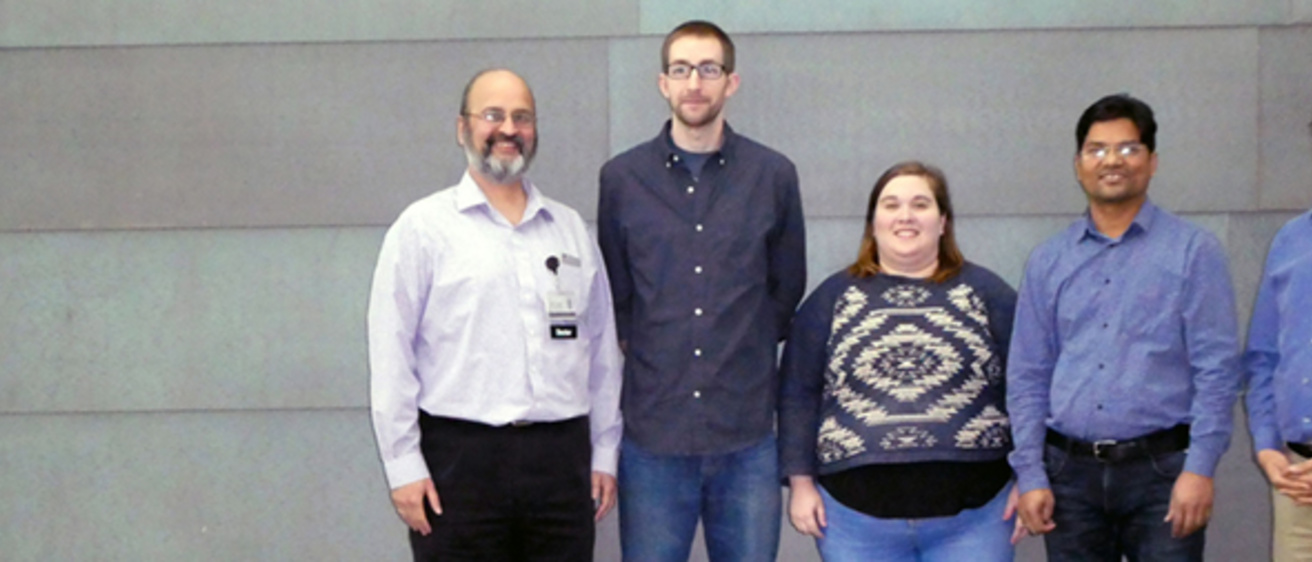Ashley Brate, Alex Boyden and Shailesh Shahi were selected for podium presentations as well as travel awards at the upcoming meeting of the American Association of Immunology in Austin, TX.
Ashley in Dr. Karandikar's lab, is presenting her research on the disease-ameliorating function of CD8+ T cells in relapsing autoimmune demelinating disease. Using the animal model of multiple sclerosis (called EAE), she has shown that myelin-specific CD8+ T cells can not only ameliorate disease severity, but also reduce the number of relapses experienced during disease. She has also probed the role of endogeneously generated myelin-specific CD8+ T cells using Listeria monocytogenes (LM) encoding neuroantigens to preferentially prime suppressive CD8+ T cells in vivo. Exciting new evidence suggests that this system can induce disease-suppressing CD8+ T cells that protect and treat relapsing EAE and supports a potential immunotherapeutic strategy.
Alex, also in Dr. Karandikar’s lab, investigated the molecular requirements for neuroantigen-specific CD8 T cell-mediated regulation of autoreactive CD4 T cells in mice with ongoing demyelinating disease. He found that these CD8 T cells could rapidly suppress pathogenic biology upon adoptive transfer, and further demonstrated distinct mechanistic requirements for optimal early vs. longer term suppression. Future work will focus on dissecting compensatory mechanisms and cellular targeting of effector molecules, which may have implications for downstream immunotherapeutic approaches.
Shailesh, in Dr. Mangalam’s lab, will present his research on the disease protective function of human gut commensal Prevotella histicola as compared to currently prescribed drugs in multiple sclerosis (MS) such as Copaxone and Interferon-β. Shailesh is working on a research project to decipher the role of gut microbiota in an animal model of multiple sclerosis. His work provides evidence that the human commensal Prevotella histicola can suppress disease in the mouse model of multiple sclerosis (MS) as efficiently as Copaxone® and Interferon beta (IFN-β) by regulating systemic immune responses. These findings highlight the significance of gut microbiota in immune system homeostasis and offer a therapeutic option for patients with autoimmune disease.
